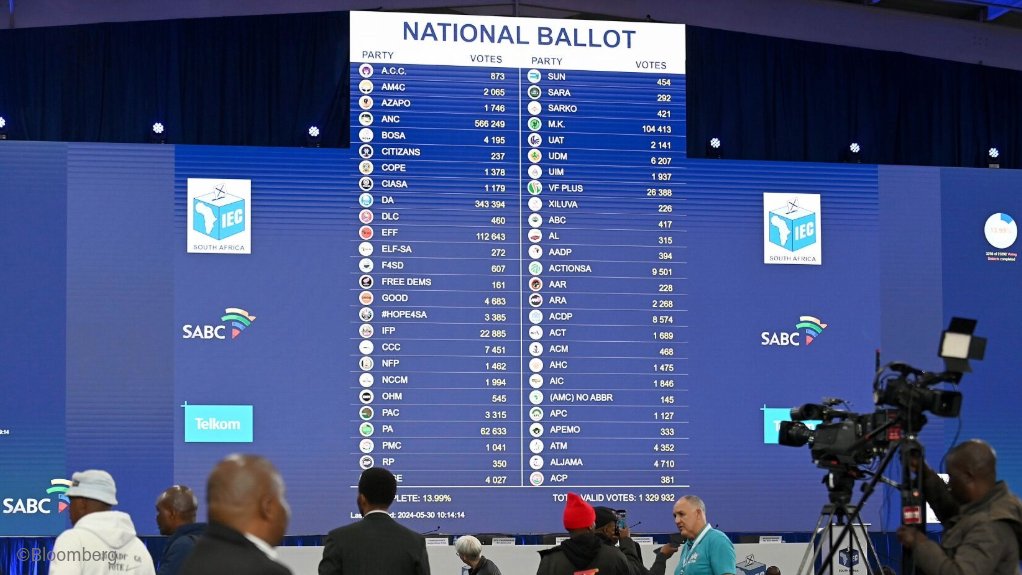Election results from South Africa have left investors swinging between anxiety over the different permuations that coalition may take and lingering hopes that whatever it is will result in a market-friendly government.
Before the vote, investors were bullish, confident the ruling African National Congress would secure enough votes for a coalition with a smaller party. That drove gains in the rand and the nation’s other assets.
However, going into the second day of tallying, and with more than 50% of voting districts counted, indications are that the ANC may not only lose its majority, but do so by a margin wider than expected.
“We remain in something of a no-man’s-land at present, with the still-sizable uncertainty over the ANC’s final tally keeping most options for the next government on the table,” said Ivailo Vesselinov, chief strategist at Emso Asset Management.
South African assets are likely to remain volatile until investors got “clarity” about which of the coalition “outcomes will transpire,” he said.
Below is a quick summary of South African markets as investors await the final results due by the weekend.
South Africa’s benchmark stock index was among the worst performers worldwide on Thursday.
That reflected some uncertainty around the election, but also global themes including a stronger dollar, weaker commodity prices and a selloff in China, said Malcolm Dorson, the head of emerging-markets strategy at Global X. An ANC coalition with a market-friendly party would help the sentiment recover, he said.
The yield on South Africa’s local-currency bonds maturing in 2035 rose Thursday by three basis points to 12.08%.
Investor demand had surged at South Africa’s weekly bond sale on Tuesday, while foreigners had been net buyers of billions of rands of the securities since Monday.
Regardless of the election outcome, the bonds remain an investor favorite. As global central banks move into an easing phase, South Africa’s double-digit yields are proving attractive.
The rand surrendered most of its monthly gains and was little changed in May. But Thursday’s losses shouldn’t be taken as a harbinger of a sustained selloff in the currency, said Lee Hardman, senior FX strategist at MUFG Bank.
“External conditions remain supportive for carry currencies such as the rand.”
Meanwhile, the rand traded little changed as of 6 a.m. in Johannesburg at 18.7569 per dollar.
EMAIL THIS ARTICLE SAVE THIS ARTICLE
To subscribe email subscriptions@creamermedia.co.za or click here
To advertise email advertising@creamermedia.co.za or click here











